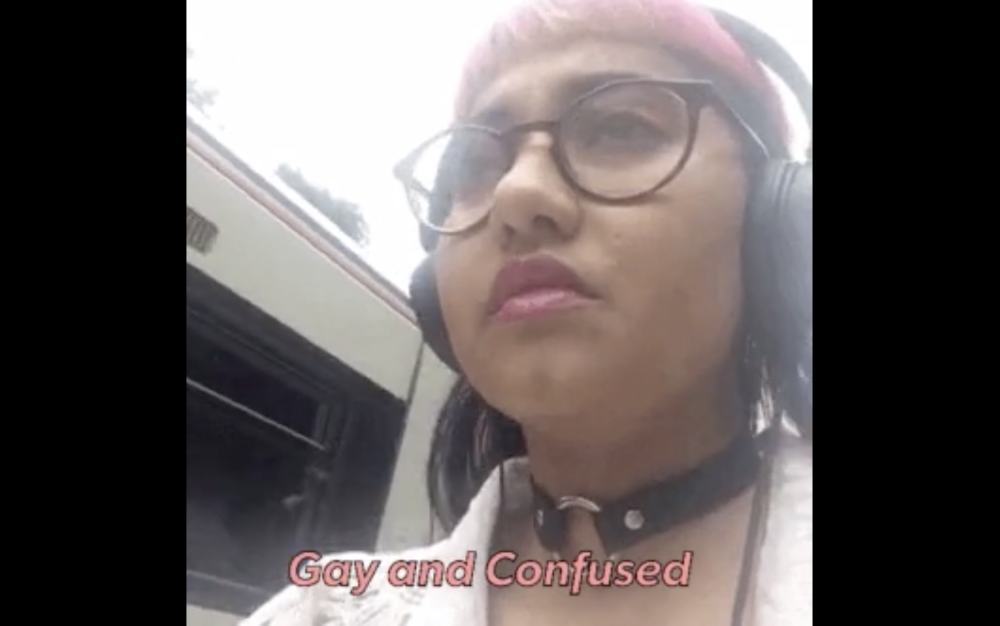In the second of a two-part series, this blog focusses on two collections from the University Archives and Special Collections Centre (ASCC) that represent LGBTQ+ communities.
In making connections between seemingly unrelated archives, and framing this within the LGBTQ+ context, these archives can be reinterpreted and reimagined to strengthen representation in underrepresented areas.
Stolen Glances: Lesbians Take Photographs
The Camerawork archive is the work of the radical arts collective Camerawork (formerly known as the Half Moon Gallery, which took the name Half Moon Photography Workshop in 1975 and Camerawork in 1981). It was one of multiple photography archives donated to the ASCC by the Photography and the Archive and Research Centre (PARC) based at the University of the Arts London (UAL).
The archive contains material from various projects, including exhibition planning files. Key to the collective’s ethos, diverse and marginalised communities used photography to challenge and explore alternative themes, which is evident in the archive. For more about this photographers-led collective, read the blog by Robin Christian, formerly of PARC.
The east London based collective produced on-site and touring exhibitions, a specialised photography magazine, and delivered educational workshops and seminars. Among the collective’s later output is the exhibition ‘Stolen Glances: Lesbians take Photographs’, which took place in the early nineties.
Follow us
Contact us

The exhibition was curated by Tessa Boffin (1960-1993) and Jean Fraser. Boffin, a photographer who specialised in LGBT issues, took many photographs in response to themes such as HIV/AIDS and cross-dressing.
The exhibition featured a series of sensual images by her and other lesbian photographers. Having encountered Boffin's work at the University for the Creative Arts Archive for a previous project, I was fascinated to see her work and contribution manifest in an entirely different archival context and framed within photography exhibition history.
In the archive we not only see the planning and organisation of the exhibition, but also examples of the photographic work, a plan of the exhibition layout at the east London gallery space, and advertising ephemera.
A key message of the exhibition seems to be the exploration of the representation of lesbianism, and a space to expose different sexualities.
Tell Us About It Archive
The Tell Us About It Archive is an accumulation of work which summarises the experiences of UAL students from diverse backgrounds and different creative disciplines for the 'Tell Us About It' project.
The project’s aim was to capture diverse student experiences, and collect a selection of work to inform and enhance learning and teaching across UAL. As it stands, the ASCC often uses this collection in object based learning and teaching sessions. This approach is great way of delivering inclusive teaching.
In this blog we're highlighting one piece from the archive, a digital object in the form of a Gif mp4 video by Katy Jalili. Jalili uses multimedia to express and explore the complexities around sexuality, gender and racial identity.
Jalili's work, ‘Surviving Art Shcool: A guide for Brown, Trans, Queer and Tired Art Students’ (2018), outlines the frustration that they and others ‘feel towards non-accepting, uneducated and offensive people and the issues queer people of colour have to face’.
In this way, Jalili has used visual arts to express and communicate difficult feelings and thoughts which may not have been disseminated otherwise. Thus, the Tell Us About It Archive is a really unique and vital archive, which gives a platform and voice to students who may not feel that they are heard, or able to express themselves.
Final thoughts
The Archives and Special Collections Centre acknowledges that although this, and other material in our archives and collections, provides a unique perspective on LGBTQ+ histories and stories, there are gaps in the material we hold. Much more still needs to be done to diversity our collections, and we will continue to address this in our work.
The material featured in this blog can be accessed by appointment in the Archives and Special Collections Centre (please note that the ASCC is currently closed until further notice due to the worldwide COVID-19 pandemic).



